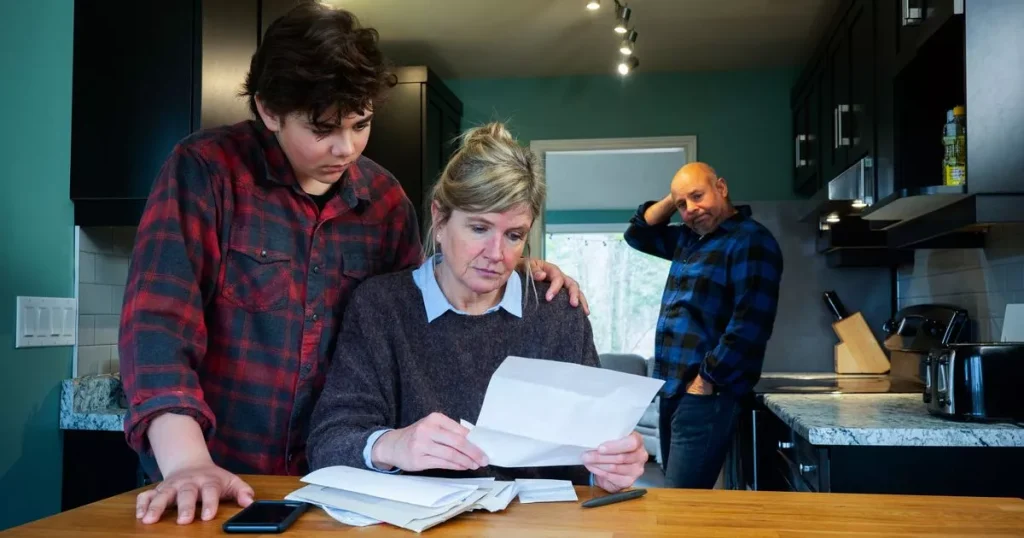Warning issued as more Brits set to face huge tax bills after pension changes

A warning has been issued as more Brits could face inheritance tax bills under the government's plans to include pension savings as part of your estate.
In Labour's Autumn Budget, Chancellor Rachel Reeves announced that unused pension funds death benefits will be subject to inheritance tax. Under the current laws, you need to pay 40% Inheritance Tax on your "estate" – so your property, money and possessions – that you pass on after you die – but only if you are leaving more than £325,000 behind.
Currently, you can give your pension to your children tax free. However from April 6 2027, these pensions will be included in your estate and will be subject to the tax. According to government estimates, the change will raise almost £1.5billion by 2030.
Economists and pensions experts say the move causes a "major concern" as Brits could face much higher bills if they fail to plan accordingly, and more could be dragged into paying as private pensions now hold a "higher proportion" of total private wealth in the UK than property.
They have also warned that the move will create much higher costs for grieving families as they could face major delays before receiving their inheritance.
'I was scammed out of £76,000 after I fell victim to fake Martin Lewis advert'
Nationwide shares spending 'rule' that could help you save up to £1,500 this winter
Jason Hollands, the managing director of wealth management firm Evelyn, said: “The impact of including unused assets in defined contribution pensions funds as part of an estate for IHT purposes is causing major concern.
“This measure will not only trigger much higher inheritance tax liabilities for those who don’t revisit their financial planning, it will also significantly widen the number of people falling into the web of IHT given private pension assets are now a higher proportion of total private wealth in the UK than property is."
Those impacted the most are set to be Brits who have estates worth over £2million. This is because the £175,000 residence nil rate band – which is the allowance for passing the family home on to direct descendants – starts to be tapered down until it disappears entirely.
Jason added: “People who have worked hard all their lives and planned carefully to both secure their retirement and provide for their families after they die, are in many cases now having these plans completely upended. The measures being planned will compel some to draw down on their pensions, especially before age 75, to gift assets to their children and grandchildren. We also think it will prompt more older couples to marry or undertake civil partnerships in late life for financial and tax reasons.”
Jon Greer, head of retirement policy at Quilter, said the inclusion would cause "significant process challenges" for pension scheme administrators. This is because they will become liable for paying and reporting inheritance tax due to HMRC on these pension funds. He explained: "This process would require a degree of back and forth between the legal personal representative and pension schemes.”
Additionally, if it takes longer than six months to pay the tax bill, HMRC will start charging interest, which currently stands at 7.25%. Jon noted that one of the biggest hurdles is the delay in notifying pension schemes when someone passes away.
He added: “Schemes are not always immediately aware of a death, and sometimes months can pass before they are informed. This delay complicates matters for legal personal representatives, who must track down the deceased’s pension schemes, confirm the death, consolidate information from the schemes and navigate the legal and tax complexities.”
Jon noted that though reforming inheritance tax treatment of pensions was a way of generating revenue, the government needed to strike a balance between "simplification, fairness, and operational feasibility". He explained: "Tax rules are already complex, and any changes should avoid imposing additional burdens on grieving families and their representatives.
“At present, pensions offer significant tax benefits, and pulling the rug out from under those who have planned their futures based on the current framework feels retrospective and unfair without some form of transition.”
Recently, Michael Summersgill, chief executive of AJ Bell, described the proposal as "arguably the most complex and costly way of raising tax from unused pensions on death” in a letter to the Chancellor. The letter – first seen by the Financial Times – said, “If the government presses ahead with the proposals as written, it will risk fundamentally undermining the UK pensions system.”
In his letter, he called on Reeves to scrap the pensions system quirk that allows beneficiaries to not pay income tax on the proceeds if the pensioner dies before the age of 75.
'Luxury' Marks and Spencer fragrance gift set now £20 in half price deal



